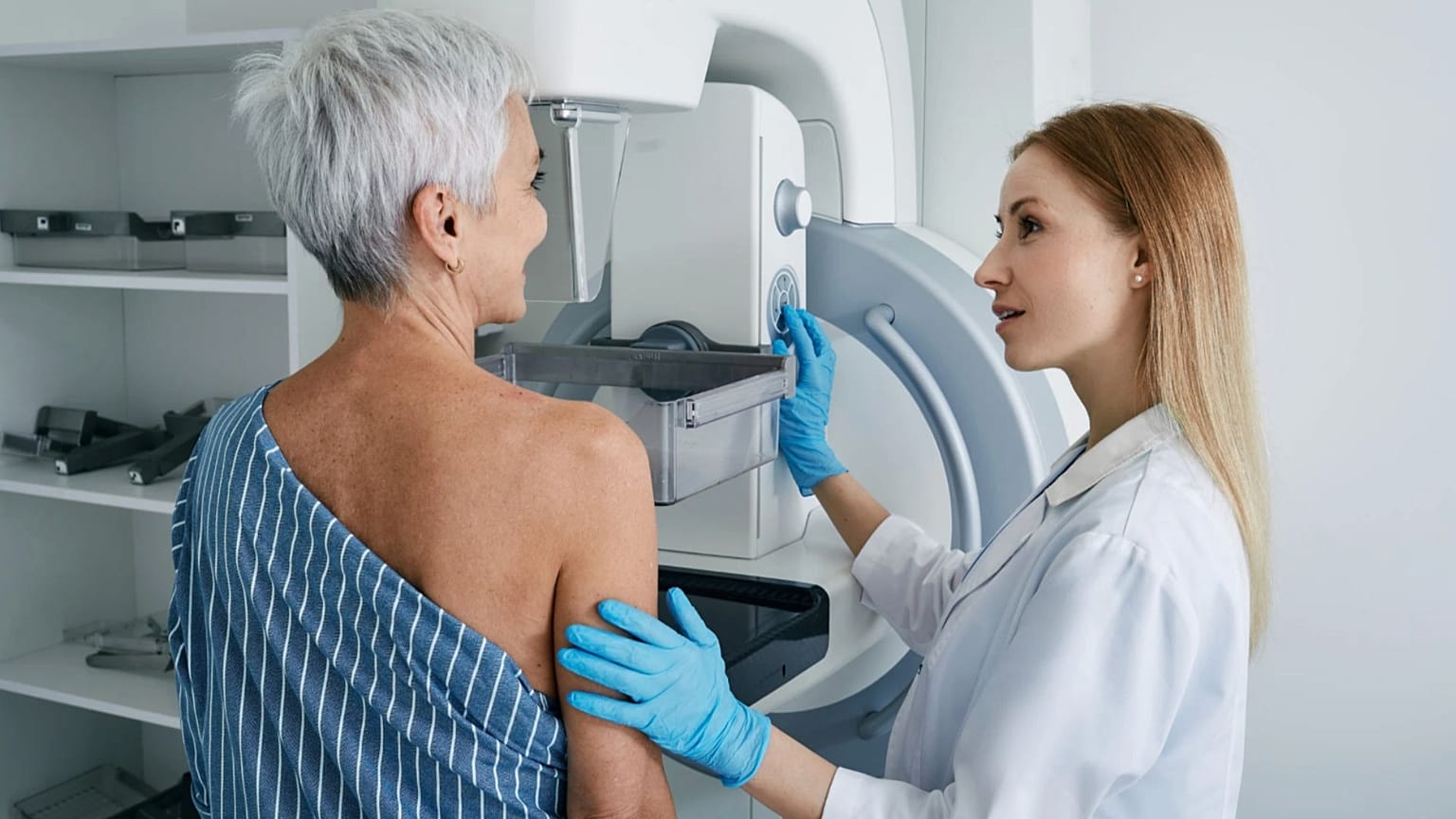Health
Early Detection Crucial in Breast Cancer Fight During Awareness Month

October marks Breast Cancer Awareness Month, highlighting the vital role of early detection in combating the most prevalent cancer among women. Statistics reveal that one in 20 women will face a breast cancer diagnosis in their lifetime. In 2022, approximately 2.3 million women worldwide were diagnosed, with nearly 670,000 succumbing to the disease. In Europe alone, the World Health Organization (WHO) documented nearly 558,000 new cases.
Despite advancements in treatment, awareness of early warning signs remains inconsistent, leading to severe health consequences. Research from Sweden’s Karolinska Institute indicates that women who miss their initial breast cancer screening appointment have a 40 percent higher risk of dying from the disease. The study analyzed data from nearly 434,000 women invited for screenings between 1991 and 2020, revealing that approximately one in three did not attend their first appointment.
Importance of Early Detection
Dr. Denise Johnson, an obstetrician-gynecologist and professor of women’s health at the University of Texas at Austin, emphasizes the significant impact of early detection on treatment outcomes. “Early detection is the key to treatment for breast cancer,” she stated, highlighting improvements in technology and medicine. “The survival rates are excellent when we detect breast cancer early. It can be as high as about 90 percent within five years of a diagnosis, and that number decreases significantly with late diagnosis.”
Mammograms remain the gold standard for early detection. European Union guidelines recommend annual screenings for women at average risk starting in their mid-40s. The procedure, an X-ray lasting 15 to 20 minutes, can identify lumps or abnormalities that may not be detectable during self-examinations. Women with a family history of breast cancer or known genetic mutations may need to begin regular screenings earlier.
Risk factors for breast cancer include age, family history, and certain genetic predispositions. It is estimated that 5 to 10 percent of breast cancer cases are linked to inherited faulty genes. Dr. Johnson advises that women should familiarize themselves with their bodies. “Have an awareness of what your breasts look like and what they feel like,” she noted. “If anything changes, definitely pay attention to that and bring it to your doctor so we can discuss if additional imaging is necessary.”
The early signs of breast cancer can manifest as a new lump in the breast or underarm, thickening or swelling of breast tissue, changes in skin texture around the nipple, or alterations in the size or shape of the breast. While breast cancer is much rarer in men, accounting for only about 1 percent of cases, they too should be vigilant for any changes in breast tissue.
Understanding Results and Treatment Options
An abnormal mammogram does not necessarily indicate cancer. Follow-up testing, including biopsies, is essential for confirmation. Dr. Johnson clarified, “Even just from that initial abnormal mammogram, there are many steps necessary to clarify if this is even a diagnosis and to be able to treat a confirmed diagnosis.”
If cancer is diagnosed, treatment options vary based on the type and stage of the disease, potentially including surgery, chemotherapy, or hormone therapy.
Growing global concerns about breast cancer are alarming. Projections from the WHO’s cancer research agency suggest that by 2050, breast cancer deaths could increase by 68 percent, with new cases rising by 38 percent. This would equate to approximately 3.2 million new cases and 1.1 million deaths annually.
“Every minute, four women are diagnosed with breast cancer worldwide and one woman dies from the disease, and these statistics are worsening,” stated Dr. Joanne Kim, an IARC scientist and one of the study’s authors. The agency warns that developing countries will bear a disproportionate burden of this increasing health crisis.
As awareness and education efforts continue, the importance of early detection remains paramount in improving survival rates and outcomes for those affected by breast cancer.
-

 Entertainment2 months ago
Entertainment2 months agoAnn Ming Reflects on ITV’s ‘I Fought the Law’ Drama
-

 Entertainment3 months ago
Entertainment3 months agoKate Garraway Sells £2 Million Home Amid Financial Struggles
-

 Entertainment2 months ago
Entertainment2 months agoCoronation Street’s Carl Webster Faces Trouble with New Affairs
-

 Health1 month ago
Health1 month agoKatie Price Faces New Health Concerns After Cancer Symptoms Resurface
-

 Entertainment1 month ago
Entertainment1 month agoWhere is Tinder Swindler Simon Leviev? Latest Updates Revealed
-

 Entertainment3 months ago
Entertainment3 months agoKim Cattrall Posts Cryptic Message After HBO’s Sequel Cancellation
-

 Entertainment2 months ago
Entertainment2 months agoMasterChef Faces Turmoil as Tom Kerridge Withdraws from Hosting Role
-

 Entertainment3 months ago
Entertainment3 months agoSpeculation Surrounds Home and Away as Cast Departures Mount
-

 World1 month ago
World1 month agoCole Palmer’s Mysterious Message to Kobbie Mainoo Sparks Speculation
-

 Entertainment2 months ago
Entertainment2 months agoITV’s I Fought the Law: Unraveling the True Story Behind the Drama
-

 Entertainment1 month ago
Entertainment1 month agoCaz Crowned Winner of The Great British Sewing Bee, Overjoyed by Triumph
-

 Entertainment3 months ago
Entertainment3 months agoMarkiplier Addresses AI Controversy During Livestream Response





















